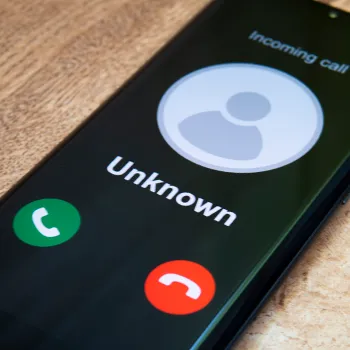TCPA Lawsuit Overview
The Telephone Consumer Protection Act (TCPA) is a federal law enacted in 1991 to protect consumers from unwanted phone calls and text messages. Thousands of people across the US are harassed by unwanted phone calls through their landline and cell phones every day.
TCPA lawsuits often happen when companies and salespeople won't stop the unsolicited calls and harassing text messages to consumers. These legal actions hold companies accountable for providing faulty telemarketing practices to consumers, leading to substantial penalties of $500 per violation, rising to $1,500 for willful misconduct.
Latest TCPA Lawsuit Updates
- 2024 – Class action settlements in 2024 remain substantial, with the top 10 TCPA settlements totaling $84.73 million [2]. Individual payouts ranging from $7,000 to $700,000 in some cases.
- 2021 – Major settlements continue with Life Time Fitness paying up to $15 million to settle claims of unsolicited telemarketing calls [3].
- 2020 – Wakefield v. ViSalus, Inc. class action resulted in $925 million for over 1.8 million illegal prerecorded calls [4].
- 2013 – TCPA was revised to require prior express consent or an established business relationship before a consumer can be called.
What is TCPA?

Some examples include calls from insurance companies and other survey and debt collection calls using a pre-recorded synthetic voice without your prior consent.
“The TCPA restricts the making of telemarketing calls and the use of automatic telephone dialing systems and artificial or pre-recorded voice messages. The rules apply to common carriers as well as to other marketers.” - FCC official website
TCPA lawsuits often happen when companies and salespeople won’t stop the unsolicited calls and harassing text messages to consumers.
FCC Reports and Statistics
According to data from regulatory bodies and legal reports:
- Civil Case Filings: Thousands of TCPA cases are filed annually in federal courts
- Average Settlements: On average, settlements land around $6.6 million, though some high-profile cases have hit $250 million or more
- Standard Penalty: $500 per TCPA violation [6]
- Willful Violation Penalty: $1,500 per violation if the action was intentional
- Settlement Example Calculations:
- 100 calls × $500 = $50,000 (standard penalty)
- 100 calls × $1,500 = $150,000 (willful violation)
- 1,000 calls × $500 = $500,000 (standard penalty)
- 1,000 calls × $1,500 = $1,500,000 (willful violation)
TCPA Violations & Common Offenders
The TCPA protects you from getting unsolicited calls and messages on your landline and cell phones. Common TCPA violations include:
- Debt Collectors: Using auto-dialers to call numbers without prior approval and contacting individuals via numbers obtained through skip-tracing
- Telemarketers: Making robocalls with pre-recorded messages without prior express consent and calling numbers listed on the National Do Not Call Registry
- Insurance Companies: Conducting automated marketing calls without prior consent and ignoring requests to stop contacting certain consumers
- Political Campaigns: Sending robocalls without securing recipient consent and failing to check the Do Not Call Registry
Scam Operations: Spoofing caller IDs to impersonate legitimate businesses and making high volumes of unsolicited calls to lure victims
Do You Qualify for a TCPA Lawsuit?
You may qualify for a TCPA lawsuit if:
- You've been harassed by a business such as easy credit access or a debt collector
- The company doesn't have an established business relationship with you but has been contacting you
- You requested that a company stops contacting you, but they haven't
- You've received pre-recorded telemarketing calls and robocalls
- You made a Do Not Call request and still got unwanted calls from a business
- You've received spam and pre-recorded messages
- You've received automated calls before 8 a.m. and after 9 p.m.
Note: Even if you have an established relationship with a company or gave consent to be contacted, there are Telemarketing Sales Rules, which protect you from an unsolicited call [7]. All of these violate the federal statute, and you have a claim against a company or a person.
Evidence Required for a TCPA Lawsuit
To support your claim in a TCPA lawsuit, you should collect:
- Call logs with dates and times
- Screenshots of calls, texts, or voicemails
- Written notes about the calls (e.g., who called, purpose)
- Recordings of voicemails using apps like Google Voice or YouMail
- Exported files of call logs and messages for evidence preservation
- Proof of Do Not Call Registry registration
Damages You Can Recover
Under the TCPA, you may be entitled to recover:
- Standard Damages: $500 per violation
- Treble Damages: Up to $1,500 per violation for willful and knowing violations
- Class Action Compensation: Significant payouts when violations affect many people
- Multiple Violation Penalties: Each violation is counted separately, potentially increasing your total compensation
TCPA Regulations Information
The TCPA was enacted in 1991 to protect consumers from unwanted phone calls and expanded in 2003 to include the Do Not Call Registry. It was further revised in 2012, requiring prior express consent or an established business relationship before a consumer can be called.
Key TCPA regulations include:
- Prohibiting calls using automated telephone dialing systems and artificial or pre-recorded voice messages without prior express consent
- Restricting telemarketing calls to residences before 8 a.m. or after 9 p.m.
- Requiring telemarketers to maintain do-not-call lists and honor consumers' requests not to be called
- Prohibiting sending unsolicited advertisements to fax machines
Statute of Limitations for TCPA Lawsuits
Under the TCPA, you generally have four years from the date of the violation to file a lawsuit. It's best to act quickly, as gathering evidence and building your case takes time. Keep detailed records of all communication to strengthen your claim.
FAQ
1. How do I sue for a TCPA violation?
To sue for a TCPA violation, get a lawyer and ensure you have proof of violation. Record communication between you and the business you want to sue, such as calls and voice messages, and have screenshots of messages.
2. What if I can't identify the caller?
If you can't identify the caller, focus on gathering as much evidence as possible, such as call logs, voicemails, or text messages. Legal professionals can use subpoenas to trace unidentified numbers back to the source. Apps like Truecaller or Hiya can also help identify spam calls.
3. How long do I have to file?
Under the TCPA, you generally have four years from the date of the violation to file a lawsuit. Act quickly to gather evidence and build a strong case.
4. What about spoofed numbers?
Even with spoofed numbers, you can pursue a TCPA claim by documenting the calls. Your attorney can work with phone carriers or subpoena records to trace the real origin of the call.
5. Can I sue cell phone spammers?
Yes, you can sue cell phone spammers under the TCPA. Whether it's robocalls, unsolicited texts, or prerecorded messages, spammers must comply with TCPA rules. Gather proof like screenshots, call logs, or voicemails to build your case.
6. How do I prove willful violation?
To prove willful violation, show the caller knowingly disregarded TCPA rules. Evidence like prior complaints, opt-out requests, or repeated calls despite objections demonstrates intent, potentially increasing the penalty to $1,500 per violation.
7. How are damages calculated in TCPA lawsuits?
TCPA violations can lead to $500 per standard violation and $1,500 per willful violation. Multiple violations can significantly increase total payouts.
8. What is the average settlement for TCPA lawsuits?
The average settlement for TCPA lawsuits is around $6.6 million for class actions. Individual payouts range from a few thousand dollars to much larger amounts depending on violation frequency and intent.
9. Can I file a class action lawsuit?
Yes, you can file individually under the Consumer Protection Act (TCPA), or a group of plaintiffs can bring a class-action lawsuit if many people experienced similar violations.
10. What if I have an established relationship with the company?
If you have an established relationship with the company, there are Telemarketing Sales Rules protecting you from unsolicited calls. The 2012 TCPA revision requires prior express consent regardless of previous relationships.
Get a Free TCPA Lawsuit Evaluation With Our Lawyers
Time is limited to pursue legal action for TCPA violations. With a statute of limitations of only 4 years from the date of violation, it's crucial to speak with an attorney as soon as possible.Our experienced TCPA lawyers are here to help you navigate the complex legal process. We offer:
- Free, confidential consultations
- No upfront costs or fees
- Payment only if we win your case
References:
- https://www.fcc.gov/general/telemarketing-and-robocalls
- https://online.flippingbook.com/view/336691308/20/
- https://www.americanspa.com/commercial-clubs/life-time-fitness-reaches-possible-15-million-settlement-tcpa-class-action-suit
- https://www.consumerclassdefense.com/2019/06/significant-tcpa-verdict-returned-in-wakefield-v-visalus-inc/
- https://www.troutman.com/insights/tcpa-rule-changes-effective-october-16-2013-is-your-marketing-campaign-ready.html
- https://consumer.ftc.gov/articles/national-do-not-call-registry-faqs
- https://www.textedly.com/sms-compliance-guide/tcpa-violations-and-penalties

 Published by
Published by 
